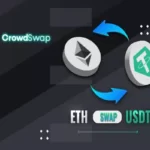Crypto payments set to soar with Senate’s tax exemption proposal

The recent Senate proposal for a cryptocurrency tax exemption has sparked significant discussions within the financial community, signaling a potential shift in how cryptocurrencies are treated in everyday transactions. This move, long overdue according to many experts, highlights the growing recognition of digital currencies as a legitimate medium for payments rather than just speculative assets. As the debate continues, it’s essential to explore how this proposal could influence the broader adoption of cryptocurrencies, particularly regarding their role in payments and the efficiency of blockchain networks.
The evolving landscape of cryptocurrencies in payments
Cryptocurrencies have come a long way since their inception, evolving from niche digital assets to a viable alternative for various transactions. Their decentralized nature and the underlying blockchain technology offer several advantages over traditional payment systems. These include faster transaction speed, lower fees, and enhanced security. However, despite these benefits, widespread adoption has been hindered by regulatory challenges, particularly concerning taxation.
The Senate’s proposal to exempt certain crypto transactions from taxation could be a game-changer. By reducing the tax burden on small transactions, this measure could encourage more individuals and businesses to use cryptocurrencies for everyday purchases, thus solidifying their position as a mainstream payment method. Moreover, this could spur further innovations within blockchain networks, improving transaction speed and overall network efficiency, making cryptocurrencies an even more attractive option for payments.
To understand the potential impact of this tax exemption, it’s important to consider the broader context. Currently, in the United States, every cryptocurrency transaction is considered a taxable event. This includes not only the sale of crypto assets but also the use of cryptocurrency for purchasing goods or services. For instance, if you buy a coffee with Bitcoin and the value of Bitcoin has appreciated since you acquired it, you are required to pay capital gains tax on the difference. This has made using cryptocurrencies for small transactions cumbersome and impractical.
The proposed legislation, known as the Virtual Currency Tax Fairness Act, aims to address this issue by creating a de minimis exemption for small crypto transactions. Specifically, transactions under $200 would be exempt from capital gains tax, allowing consumers to use cryptocurrencies for everyday purchases without the fear of complicated tax implications. This would not only simplify the process for individual users but also make cryptocurrencies more appealing as a payment method for businesses.
Why speed and network efficiency matter in crypto payments
One of the key factors that determine the usability of cryptocurrencies in payments is the speed of transactions. Unlike traditional payment systems that may take days to settle, transactions on blockchain networks can be completed in minutes or even seconds. This is particularly important in an increasingly digital world, where consumers and businesses alike demand quick and efficient payment solutions.
The efficiency of a blockchain network is not only measured by speed but also by its capacity to handle large volumes of transactions without compromising security. As more users begin to utilize cryptocurrencies for payments, the demand on these networks increases, making it crucial for them to scale effectively. The Senate’s proposal could indirectly contribute to this by driving demand for better-performing networks that can handle the increased transaction load without sacrificing speed or security.
To put things into perspective, the Bitcoin network, which is the most widely used blockchain, can process around 7 transactions per second. In comparison, the Ethereum network, which is also popular for payments and smart contracts, can handle around 30 transactions per second. These numbers pale in comparison to traditional payment networks like Visa, which can process up to 24,000 transactions per second. This disparity highlights the need for continuous improvements in blockchain technology to ensure that it can support the growing adoption of cryptocurrencies in payments.
In recent years, several Layer 2 solutions and alternative blockchain networks have emerged to address these challenges. For example, the Lightning Network, a Layer 2 protocol built on top of the Bitcoin blockchain, enables faster and cheaper transactions by conducting them off-chain and settling the final results on the main Bitcoin blockchain. Similarly, other networks like Solana and Binance Smart Chain have been developed to offer higher transaction speeds and lower fees, making them more suitable for payment use cases.
As the demand for faster and more efficient crypto payments grows, we can expect further innovations in this space. The Senate’s proposal c
The role of crypto payment gateways
In the context of increasing crypto adoption, payment gateways like Sheepy play a vital role. Sheepy offers a seamless solution for businesses looking to integrate cryptocurrency payments into their operations. By providing a user-friendly interface and robust security features, Sheepy ensures that businesses can accept cryptocurrencies without worrying about the complexities of blockchain technology.
What sets Sheepy apart is its commitment to supporting a wide range of cryptocurrencies, making it one of the best crypto payment solutions available. Whether you’re a small business or a large enterprise, Sheepy crypto payment gateway offers a reliable and efficient way to tap into the growing market of digital currency users. As cryptocurrencies continue to gain traction as a legitimate form of payment, using a gateway like Sheepy becomes increasingly essential for businesses aiming to stay ahead in the digital economy.
Additionally, Sheepy provides advanced features that cater to the specific needs of businesses. For example, it offers automatic conversion of cryptocurrencies into fiat currencies, which helps businesses mitigate the risk of price volatility – a common concern when dealing with digital currencies. This feature ensures that businesses receive the exact amount of money they expect, regardless of fluctuations in the cryptocurrency market.
The integration of Sheepy into a business’s payment system is straightforward, with a variety of APIs and plugins available to simplify the process. This ease of use makes it an attractive option for businesses that want to offer their customers the flexibility of paying with cryptocurrencies without the need for significant technical expertise.
A new dawn for digital payments
The Senate’s proposal for a crypto tax exemption represents a significant step towards normalizing cryptocurrencies as a standard payment method. As this proposal gains momentum, it is likely to drive further advancements in blockchain technology, particularly in terms of transaction speed and network efficiency. For businesses and consumers alike, this means more opportunities to leverage the benefits of cryptocurrencies for everyday transactions.
This shift towards broader adoption of cryptocurrencies for payments is not only a win for consumers but also for businesses. By accepting digital currencies, businesses can tap into a global market of crypto users, reduce transaction costs, and offer a more secure and efficient payment method. The tax exemption proposal could be the catalyst that accelerates this transition, making cryptocurrencies a staple in the digital economy.
The regulatory landscape will undoubtedly continue to evolve as governments around the world grapple with how to best integrate cryptocurrencies into the existing financial system. However, the Senate’s proposal signals a positive shift towards more favorable treatment of cryptocurrencies in the United States, which could influence other countries to follow suit.







